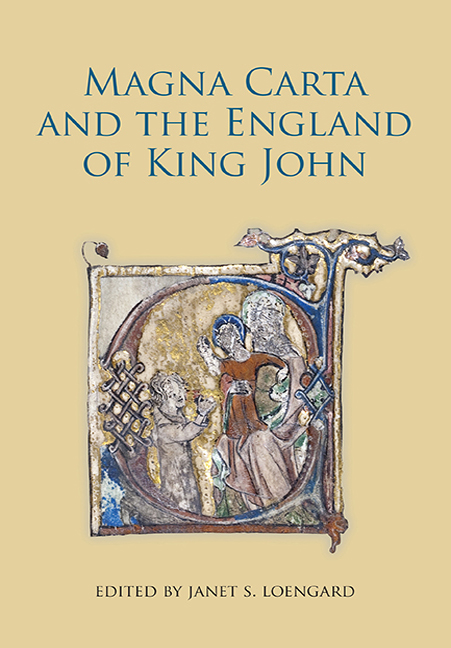Book contents
- Frontmatter
- Contents
- List of Contributors
- List of Abbreviations
- Introduction
- England in 1215: An Authoritarian Angevin Dynasty Facing Multiple Threats
- The Anonymous of Béthune, King John and Magna Carta
- Baronial Paranoia in King John's Reign
- The Forest Eyre in the Reign of King John
- The Managerial Revolution in the English Church
- Magna Carta, the ius commune, and English Common Law
- Justice without Judgment: Criminal Prosecution before Magna Carta
- What Did Magna Carta Mean to Widows?
- The English Economy in the Age of Magna Carta
- The Complaint of King John against William de Briouze (c. September 1210)
- Index
The Managerial Revolution in the English Church
Published online by Cambridge University Press: 28 April 2017
- Frontmatter
- Contents
- List of Contributors
- List of Abbreviations
- Introduction
- England in 1215: An Authoritarian Angevin Dynasty Facing Multiple Threats
- The Anonymous of Béthune, King John and Magna Carta
- Baronial Paranoia in King John's Reign
- The Forest Eyre in the Reign of King John
- The Managerial Revolution in the English Church
- Magna Carta, the ius commune, and English Common Law
- Justice without Judgment: Criminal Prosecution before Magna Carta
- What Did Magna Carta Mean to Widows?
- The English Economy in the Age of Magna Carta
- The Complaint of King John against William de Briouze (c. September 1210)
- Index
Summary
The century between the accession of Henry II in 1154 and the provisions of Oxford in 1258 witnessed momentous changes in the governance of the English kingdom, of which the baronial discontent that led to Magna Carta and its reissues were, of course, one part. This paper will address another of those momentous changes, namely the takeover of leadership in the church by lawyers. This managerial revolution, to use Colin Morris's phrase, profoundly altered the way in which the church conducted its business during the centuries that followed.
The lawyers involved in this revolution were not the ones who worked in the common law courts, but rather clerics trained in the two learned laws, Roman and canon, that contemporaries described as utrumque ius or ius commune. All priests were supposed to know some canon law of course, but for many that knowledge was decidedly elementary. By 1258 formal legal training had become normal, even commonplace, among English bishops and archbishops. Lesser prelates, too, could by that point often boast some legal training and sometimes law degrees as well.
This change was, to be sure, hardly peculiar to England. By the end of the twelfth century the college of cardinals was already dominated by men trained in Roman and canon law. Two of those cardinals became popes before the end of the century, while at least five of the thirteenth-century popes were full-fledged lawyers. Substantial numbers of bishops and archbishops in France and the Low Countries likewise had serious legal credentials.
Although these developments were not uniquely English, nonetheless English churchmen played a central role in what was happening. It is significant, for example that more than half of the 713 decretals of Pope Alexander III (r. 1159–1181) that found their way into the Church's law books were addressed to English recipients. Critics complained that the increasing prominence of jurists among the episcopate detracted from the spiritual life not only of members of the hierarchy, but also among the faithful at large. ‘Formerly the Church used to be governed in peace by the canons,’ complained an anonymous Paris preacher, ‘but now it is ruled by advocates who do more evil than heretics.’
¶ Teaching of ius commune by Englishmen
No one is born a lawyer. Lawyers are formed in law schools, not in their mother's womb.
- Type
- Chapter
- Information
- Magna Carta and the England of King John , pp. 83 - 98Publisher: Boydell & BrewerPrint publication year: 2010



